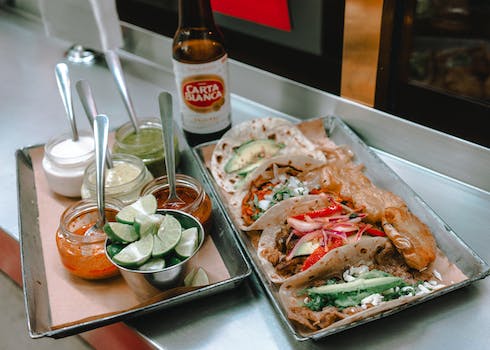

-
Table of Contents
"Unveiling the Cultural Traditions: A Personal Journey into Consuming Dog Meat in India"
Introduction
In this essay, I will be sharing my personal experience with consuming dog meat in India.
Cultural Perspectives on Consuming Dog Meat in India
Exploring My Experience with Consuming Dog Meat in India
India is a country known for its rich cultural diversity and unique traditions. One such tradition that has sparked controversy and debate is the consumption of dog meat. As an outsider, I was both curious and apprehensive about this practice, and I decided to delve deeper into the cultural perspectives surrounding the consumption of dog meat in India.
To understand the cultural significance of consuming dog meat in India, it is essential to recognize that it is not a widespread practice. In fact, it is limited to certain regions and communities, primarily in the northeastern states of Nagaland, Mizoram, and Manipur. These states have a long history of indigenous tribes who have been consuming dog meat as part of their traditional diet for centuries.
The consumption of dog meat in these regions is deeply rooted in their cultural beliefs and practices. For these communities, dogs are not seen solely as pets but also as a source of sustenance. They believe that consuming dog meat brings strength and vitality, and it is often associated with rituals and ceremonies. It is important to note that these communities have a different perception of dogs compared to the majority of Indians, who consider them as companions and friends.
However, it is crucial to address the ethical concerns surrounding the consumption of dog meat. Many animal rights activists argue that it is cruel and inhumane to kill dogs for food. They believe that dogs, like any other animal, deserve to be treated with compassion and respect. These activists have been advocating for a ban on the consumption of dog meat, citing the need to protect animal welfare.
The debate surrounding the consumption of dog meat in India is complex and multifaceted. On one hand, there is a need to respect and preserve cultural traditions and practices. The indigenous communities who consume dog meat argue that it is an integral part of their identity and heritage. They believe that banning the consumption of dog meat would be an infringement on their cultural rights.
On the other hand, there is a growing concern for animal welfare and the need to protect animals from unnecessary suffering. It is important to find a balance between cultural preservation and ethical considerations. This can be achieved through education and awareness programs that promote responsible and sustainable practices.
In recent years, there has been a shift in public opinion regarding the consumption of dog meat in India. Many Indians, especially the younger generation, are becoming more aware of animal rights and are questioning the morality of consuming dog meat. This changing mindset has led to increased pressure on the government to address the issue and enact stricter regulations.
In conclusion, the consumption of dog meat in India is a complex issue that requires careful consideration of cultural perspectives and ethical concerns. While it is important to respect and preserve cultural traditions, it is equally important to ensure the welfare and protection of animals. Finding a balance between these two aspects is crucial for fostering a society that values both cultural diversity and compassion towards animals.
Ethical Considerations of Consuming Dog Meat in India

Exploring My Experience with Consuming Dog Meat in India
India is a country known for its diverse culinary traditions, with a wide range of dishes that cater to different tastes and preferences. However, one aspect of Indian cuisine that often sparks controversy and ethical debates is the consumption of dog meat. As someone who has had the opportunity to try this controversial delicacy, I feel compelled to delve into the ethical considerations surrounding the consumption of dog meat in India.
First and foremost, it is important to acknowledge that the consumption of dog meat is not widely accepted in India. In fact, it is considered taboo in many parts of the country, with strong cultural and religious beliefs against it. Dogs are often seen as loyal companions and are even revered in some communities. Therefore, the act of consuming dog meat can be seen as a betrayal of this bond and a violation of these cultural norms.
From an ethical standpoint, the consumption of dog meat raises concerns about animal welfare. Dogs are intelligent and sentient beings, capable of experiencing pain and suffering. The methods used to slaughter and prepare dog meat in some parts of India are often inhumane and involve unnecessary cruelty. This raises questions about the moral implications of supporting an industry that profits from the suffering of animals.
Furthermore, there are also public health concerns associated with the consumption of dog meat. Dogs can carry various diseases and parasites that can be transmitted to humans through the consumption of their meat. This poses a significant risk to public health, especially in areas where proper hygiene and food safety practices may be lacking. Therefore, the consumption of dog meat can be seen as a potential threat to public health and safety.
On the other hand, proponents of consuming dog meat argue that it is a matter of personal choice and cultural diversity. They argue that just as some cultures consume beef, pork, or chicken, others have a long-standing tradition of consuming dog meat. They believe that it is important to respect and preserve these cultural practices, as they are an integral part of a community's identity and heritage.
Additionally, some argue that the consumption of dog meat can be justified on the grounds of sustainability. In many parts of India, stray dogs are a common problem, often causing issues such as overpopulation and public safety concerns. By consuming dog meat, proponents argue that it can help control the stray dog population and reduce the burden on animal shelters and resources.
In conclusion, the consumption of dog meat in India is a complex and controversial issue that raises important ethical considerations. While cultural diversity and personal choice are important factors to consider, it is crucial to also take into account the welfare of animals and public health concerns. Ultimately, finding a balance between cultural traditions and ethical considerations is essential in addressing this contentious topic.
Personal Reflections on Trying Dog Meat in India
Exploring My Experience with Consuming Dog Meat in India
India is a country known for its diverse culinary traditions, with a wide range of flavors and ingredients that tantalize the taste buds. As a traveler with a passion for exploring different cultures through their food, I found myself faced with a unique opportunity during my visit to India – the chance to try dog meat.
Before embarking on this culinary adventure, I was aware of the controversy surrounding the consumption of dog meat. In many Western countries, dogs are considered beloved pets and the thought of eating them is met with shock and disgust. However, in certain regions of India, particularly in the northeastern states, dog meat is a part of the local cuisine and has been for centuries.
Curiosity got the better of me, and I decided to set aside my preconceived notions and embrace the opportunity to delve into this aspect of Indian culture. I wanted to understand the reasons behind the consumption of dog meat and experience it firsthand.
My first encounter with dog meat was at a local market in Nagaland, a state in northeastern India. The market was bustling with activity, and the aroma of various meats filled the air. As I approached a stall selling dog meat, I couldn't help but feel a mix of excitement and apprehension.
The vendor, a friendly middle-aged man, explained that dog meat is considered a delicacy in Nagaland and is often consumed during festivals and special occasions. He assured me that the dogs used for meat were not pets but rather bred specifically for this purpose. This distinction helped ease my conscience, as I grappled with the ethical implications of consuming an animal that is typically seen as a companion.
I decided to try a traditional Naga dish called "Axone with Dog Meat." Axone, a fermented soybean paste, is a staple ingredient in Naga cuisine and is known for its pungent aroma and unique flavor. The dish arrived at my table, and I took a deep breath, preparing myself for the taste of the unknown.
The first bite was a revelation. The tender meat, marinated in a blend of spices and cooked to perfection, was surprisingly delicious. The flavors were rich and complex, with a hint of smokiness from the grilling process. The axone added a distinct umami flavor that complemented the meat beautifully.
As I savored each bite, I couldn't help but reflect on the cultural significance of this experience. Food has always been a powerful medium for connecting people and understanding different cultures. Trying dog meat in India allowed me to gain a deeper appreciation for the diversity of culinary traditions and the complex relationship between humans and animals.
However, it is important to acknowledge the ethical concerns surrounding the consumption of dog meat. While it may be a part of certain cultures, it is crucial to ensure that the animals are raised and slaughtered in a humane manner. Additionally, it is essential to respect the cultural sensitivities of others and approach the topic with an open mind and a willingness to learn.
In conclusion, my experience with consuming dog meat in India was a thought-provoking journey into a different culinary world. It challenged my preconceptions and allowed me to explore the cultural significance of food. While it may not be an experience for everyone, it served as a reminder of the power of food to bridge gaps and foster understanding between different cultures.
Q&A
1. Is consuming dog meat common in India?
Consuming dog meat is not common in India. It is considered taboo and is generally not a part of the country's culinary practices.
2. Are there any specific regions in India where dog meat is consumed?
There are no specific regions in India where dog meat consumption is prevalent. It is generally not a culturally accepted practice across the country.
3. What are the legal regulations regarding consuming dog meat in India?
The consumption of dog meat is illegal in most parts of India. Animal welfare laws and regulations prohibit the slaughter and consumption of dogs for meat.
Conclusion
In conclusion, my experience with consuming dog meat in India was a personal and subjective one. It is important to acknowledge that cultural practices and beliefs vary across different regions and societies. While some individuals may view the consumption of dog meat as acceptable, others may find it morally and ethically objectionable. It is crucial to approach such topics with sensitivity and respect for diverse perspectives.












